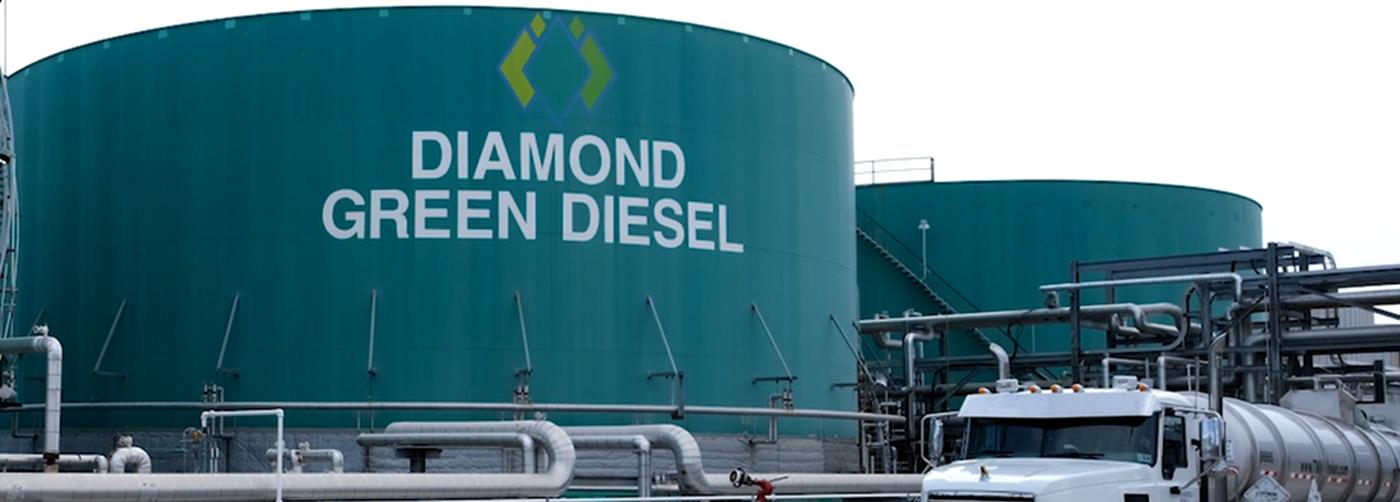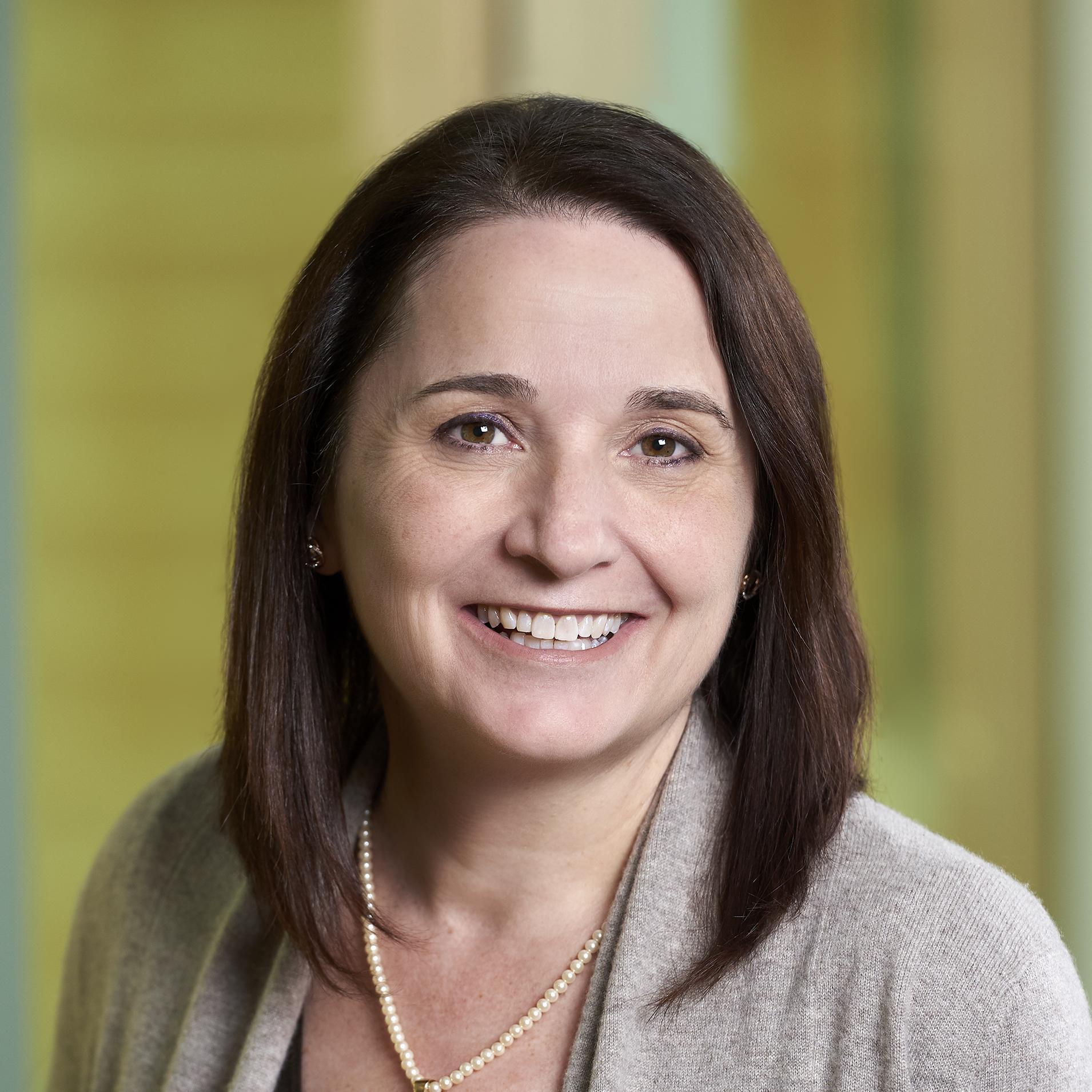
Darling Ingredients' Circular Approach to Sustainability
-
bookmark
-
print
As one of the largest producers of renewable diesel, Darling Ingredients leads a circular approach to sustainability, repurposing and recycling animal byproducts and other materials into essential ingredients for fertilizer, feed, and fuel.
The company, which is also a BMO Capital Markets client, was featured in an episode of EARTH TV, a documentary series hosted by six-time Emmy Award winner John Holden.
The show also highlighted how BMO's work supports Darling Ingredients.
"Our sustainability is really an essential part of our business strategy, which is to boldly grow the good in business and life," said Sharon Haward-Laird, General Counsel and Executive Committee Lead for Sustainability at BMO. "Our Climate Ambition, which we announced in 2021, is to be our clients' lead partner in their transition to a net-zero world. We believe if we can help our clients to transition to achieve their own sustainability goals, we'll be doing our part as one of the largest banks in North America."
Hi, I'm John Holden. Welcome to Earth. Our next story takes us here to the heart of America's oil refining industry, Norco, Louisiana, where every day over 3 million
barrels of oil are being produced. In fact, all five of the country's biggest refineries are located in this region, with Texas producing almost half of the U.S. output .84 billion barrels per day.
Now, most people know that burning fossil fuels is the most significant cause of Earth's warming climate. In fact, it accounts for three quarters of the greenhouse gas emissions
and 90% of carbon dioxide emissions blanketing our planet. But this facility, operated by Diamond Green Diesel and a joint venture with Darling Ingredients, represents a significant movement away from fossil fuel production and towards renewable energy.
We are considered the number one supplier in the world of a fuel that's a drop in fuel for heavy transportation today and reducing greenhouse gas emissions or tailpipe emissions by 80%. and we're just so proud of what we built.
What started as a small meat rendering company in 1882, Darling Ingredients now operates in 280 factories in nearly 25 countries in three related sustainable markets feed, food and fuel and today is one of the world's largest producers of renewable diesel. In nature, nothing is wasted. Every atom is used again and again.
We apply that same circularity to industry, and we use all of the ingredients we create from the animal waste and food industries and we make hundreds of ingredients that go back into fueling cars, fueling trains, fueling planes. We produce all kinds of ingredients, ingredients ranging from human proteins that go into the collagen powder to use edible animal fats.
Sausage casings. Organic fertilizers were the largest used cooking oil collected in North America today, and then what we can't eat or feed to an animal, we then convert back into green energy. then we marry that all up with where we're at today a diamond green diesel to convert animal fats and use cooking oil and other vegetable oils into renewable diesel and very soon here sustainable aviation fuel.
And this company's keen interest in producing sustainable energy is amplified even by its chosen location. Now, do you know that cypress swamps like this one surrounding
the refinery are critical for capturing carbon from the air?
In fact, acre for acre, these remarkable trees will recover as much as four times the amount of carbon as a typical rainforest. With all this increased interest in decarbonization, the demand for renewable energy continues to rise. Global biodiesel consumption was about 66 million metric tons in 2023, and is expected to exceed 75 million tons by 2030.
We repurposed slaughtered animal byproducts one out of every six animals in the world and produced food, feed and fuel for a growing population. And each part of that chain is important to making meat affordable in the world, helping a population get a chance at an improving lifestyle, and then if you can participate in making the earth a better place, it is so cool.
The sky is really the limit. We're constantly looking to do better, be able to get our greenhouse gas emissions down to get our commercial footprint down.
And I think that as we continue to do that, we help our customers and the rest of the world decarbonize. A green energy project like this would not be possible without investments and partnership opportunities and that requires banking and financial commitments which support our essential transition to a greener world.
Bank of Montreal, or BMO, is one such institution. Well, our sustainability is really a essential part of our business strategy, which is to boldly grow the good in business and life and our climate ambition, which we announced in 2021, is to be our client's lead partner in their transition to a net zero world.
And we believe if we can help our clients to transition to achieve their own sustainability goals, we'll be doing our part as one of the largest banks in North America. We believe that you cannot be profitable if you're not sustainable, and then you can't be sustainable if you're not profitable.
So companies and banks like BMO need to find ways to do both at the same time. These projects are only made possible with great partners such as BMO, that make a transition to a circular economy in a greener world possible through their financial and banking investment opportunities. This is just more proof of the impact financial companies are having in our fight against global warming.
I'm John Holden. Thanks for watching.
Darling Ingredients' Circular Approach to Sustainability
General Counsel and Executive Committee Lead for Sustainability at BMO Financial Group
Sharon Haward-Laird is General Counsel of BMO Financial Group and leads the bank’s legal and regulatory compliance groups. She is responsible for corporate go…
Sharon Haward-Laird is General Counsel of BMO Financial Group and leads the bank’s legal and regulatory compliance groups. She is responsible for corporate go…
VIEW FULL PROFILE-
Minute Read
-
Listen
Stop
-
Text Bigger | Text Smaller
As one of the largest producers of renewable diesel, Darling Ingredients leads a circular approach to sustainability, repurposing and recycling animal byproducts and other materials into essential ingredients for fertilizer, feed, and fuel.
The company, which is also a BMO Capital Markets client, was featured in an episode of EARTH TV, a documentary series hosted by six-time Emmy Award winner John Holden.
The show also highlighted how BMO's work supports Darling Ingredients.
"Our sustainability is really an essential part of our business strategy, which is to boldly grow the good in business and life," said Sharon Haward-Laird, General Counsel and Executive Committee Lead for Sustainability at BMO. "Our Climate Ambition, which we announced in 2021, is to be our clients' lead partner in their transition to a net-zero world. We believe if we can help our clients to transition to achieve their own sustainability goals, we'll be doing our part as one of the largest banks in North America."
Hi, I'm John Holden. Welcome to Earth. Our next story takes us here to the heart of America's oil refining industry, Norco, Louisiana, where every day over 3 million
barrels of oil are being produced. In fact, all five of the country's biggest refineries are located in this region, with Texas producing almost half of the U.S. output .84 billion barrels per day.
Now, most people know that burning fossil fuels is the most significant cause of Earth's warming climate. In fact, it accounts for three quarters of the greenhouse gas emissions
and 90% of carbon dioxide emissions blanketing our planet. But this facility, operated by Diamond Green Diesel and a joint venture with Darling Ingredients, represents a significant movement away from fossil fuel production and towards renewable energy.
We are considered the number one supplier in the world of a fuel that's a drop in fuel for heavy transportation today and reducing greenhouse gas emissions or tailpipe emissions by 80%. and we're just so proud of what we built.
What started as a small meat rendering company in 1882, Darling Ingredients now operates in 280 factories in nearly 25 countries in three related sustainable markets feed, food and fuel and today is one of the world's largest producers of renewable diesel. In nature, nothing is wasted. Every atom is used again and again.
We apply that same circularity to industry, and we use all of the ingredients we create from the animal waste and food industries and we make hundreds of ingredients that go back into fueling cars, fueling trains, fueling planes. We produce all kinds of ingredients, ingredients ranging from human proteins that go into the collagen powder to use edible animal fats.
Sausage casings. Organic fertilizers were the largest used cooking oil collected in North America today, and then what we can't eat or feed to an animal, we then convert back into green energy. then we marry that all up with where we're at today a diamond green diesel to convert animal fats and use cooking oil and other vegetable oils into renewable diesel and very soon here sustainable aviation fuel.
And this company's keen interest in producing sustainable energy is amplified even by its chosen location. Now, do you know that cypress swamps like this one surrounding
the refinery are critical for capturing carbon from the air?
In fact, acre for acre, these remarkable trees will recover as much as four times the amount of carbon as a typical rainforest. With all this increased interest in decarbonization, the demand for renewable energy continues to rise. Global biodiesel consumption was about 66 million metric tons in 2023, and is expected to exceed 75 million tons by 2030.
We repurposed slaughtered animal byproducts one out of every six animals in the world and produced food, feed and fuel for a growing population. And each part of that chain is important to making meat affordable in the world, helping a population get a chance at an improving lifestyle, and then if you can participate in making the earth a better place, it is so cool.
The sky is really the limit. We're constantly looking to do better, be able to get our greenhouse gas emissions down to get our commercial footprint down.
And I think that as we continue to do that, we help our customers and the rest of the world decarbonize. A green energy project like this would not be possible without investments and partnership opportunities and that requires banking and financial commitments which support our essential transition to a greener world.
Bank of Montreal, or BMO, is one such institution. Well, our sustainability is really a essential part of our business strategy, which is to boldly grow the good in business and life and our climate ambition, which we announced in 2021, is to be our client's lead partner in their transition to a net zero world.
And we believe if we can help our clients to transition to achieve their own sustainability goals, we'll be doing our part as one of the largest banks in North America. We believe that you cannot be profitable if you're not sustainable, and then you can't be sustainable if you're not profitable.
So companies and banks like BMO need to find ways to do both at the same time. These projects are only made possible with great partners such as BMO, that make a transition to a circular economy in a greener world possible through their financial and banking investment opportunities. This is just more proof of the impact financial companies are having in our fight against global warming.
I'm John Holden. Thanks for watching.
You might also be interested in
More U.S. and Canadian Companies Are Being Driven to Climate Action Because of Customer Expectations: Survey Shows

Financing Critical Minerals: Opportunities to Build New Investment Frameworks

Validating Breakthrough Energy Concepts, a Discussion with George Hathaway

How Developers and Builders Are Paving the Way for a Greener Future

From Farm to Future: How Funding Solutions are Shaping Agricultural Emissions
Why Sustainability Is Good Business: Key Takeaways from IEFA Toronto 2024

Building for Tomorrow: Real Estate, Construction, and Sustainability
Women Entrepreneurs are Advancing Sustainability: Reflecting on the Results of the WE Empower UN SDG Challenge

Canadian Zero-Carbon Multi-Unit Residential Buildings: An Analysis of the Cost and Asset Value

BMO Equity Research on the AI + Data Center Build Out: Sustainability Impacts, Second Order Beneficiaries

Making Renewable Energy Technology Accessible to Underserved Communities: GRID Alternatives in Conversation

Women are Leading Across the Landscape of Climate and Sustainability

The Role of Responsible Mining in the Clean Energy Transition: ICMM CEO Rohitesh Dhawan in Conversation

Extreme Temperatures: How North American Cities Amplify Climate Change

Transforming the Textile Industry: Apparel Impact Institute in Conversation

Protecting Outdoor Spaces: The Conservation Alliance in Conversation

Building Meaningful Connections with Nature: Parks California in Conversation

Free, Prior and Informed Consent (FPIC): Mark Podlasly in Conversation

Quick Listen: Michael Torrance on Empowering Your Organization to Operationalize Sustainability

Quick Listen: Darryl White on the Importance of US-Canada Partnership

North America’s Critical Minerals Advantage: Deep Dive on Community Engagement

Evolving Mining for a Sustainable Energy Transition: ICMM CEO Rohitesh Dhawan in Conversation

Public Policy and the Energy Transition: Howard Learner in Conversation

Quick Listen: Darryl White on the Economic Implications of a Rapidly-Aging Society

Taskforce on Nature-Related Financial Disclosure (TNFD) – A Plan for Integrating Nature into Business

ESG Trends in the Base Metal and Diversified Mining Industries: BMO Equity Research Report

COP27 in Focus: Will Energy Security and Economic Uncertainty Impact the Climate Transition?

RoadMap Project: An Indigenous-led Paradigm Shift for Economic Reconciliation

On-Farm Carbon and Emissions Management: Opportunities and Challenges

Sustainability Strategy and Reporting for Small and Medium Sized Companies: A Discussion at the Conference of Montreal

Investment Opportunities for a Net-Zero Economy: A Conversation at the Milken Institute Global Conference

How Hope, Grit, and a Hospital Network Saved Maverix Private Capital Founder John Ruffolo

Hydrogen’s Role in the Energy Transition: Matt Fairley in Conversation

Key Takeaways on Ag, Food, Fertilizer & ESG from BMO’s Farm to Market Conference

Building an ESG Business Case in the Food Sector: The Food Institute

Retrofitting Canada's Building Sector: Efficiency Canada’s Corey Diamond in Conversation

The Role of Hydrogen in the Energy Transition: FuelCell Energy CEO Jason Few in Conversation


Tackling Climate Change in Metals and Mining: ICMM CEO Rohitesh Dhawan in Conversation

The Post 2020 Biodiversity Framework – A Discussion with Basile Van Havre

The Risk of Permafrost Thaw on People, Infrastructure & Our Future Climate

Biggest Trends in Food and Ag, From ESG to Inflation to the Supply Chain

Understanding Biodiversity Management: Best Practices and Innovation

Episode 31: Valuing Natural Capital – A Discussion with Pavan Sukhdev

Episode 29: What 20 Years of ESG Engagement Can Teach Us About the Future

Episode 28: Bloomberg: Enhancing ESG Disclosure through Data-Driven Solutions

Episode 23: TC Transcontinental – A Market Leader in Sustainable Packaging

Episode 07: World Bank: Mobilizing Capital Markets for Sustainable Finance

Episode 06: Responsible Investing – Industry Trends and Best Practices from Canada













